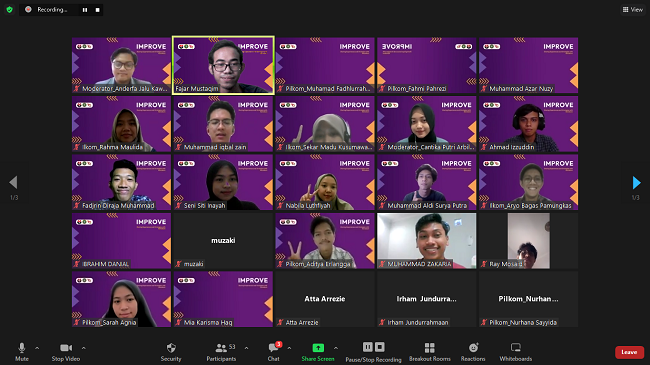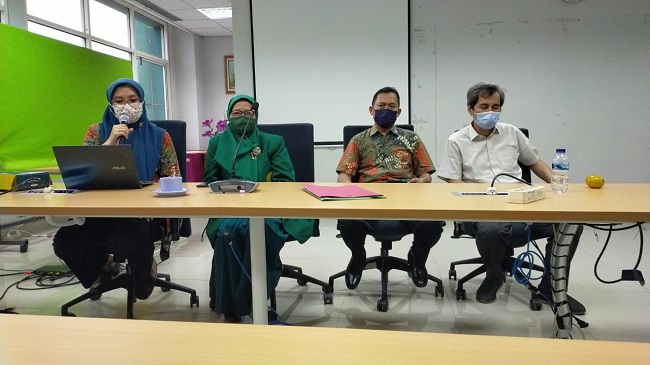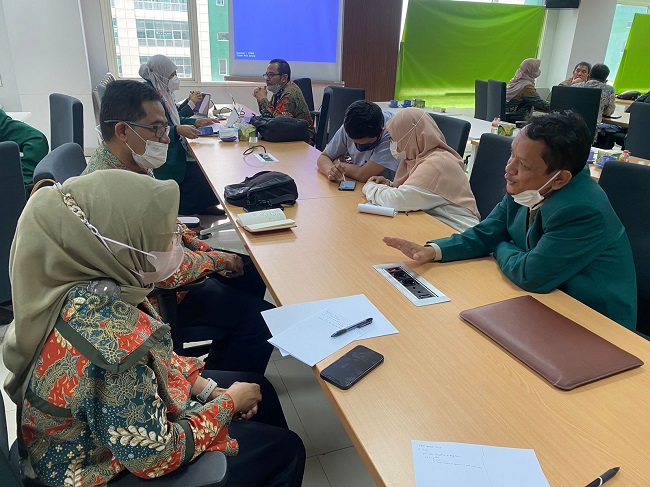Merdeka Belajar - Kampus Merdeka (MBKM) is a program introduced by the Ministry Research, Technology and Higher Education Indonesia (Kemenristekdikti) which aims to encourage students to master various sciences to prepare them to enter the world of work. MBKM itself has several programs, namely Certified Internships, Independent Student Exchange, Teaching Campus, and Certified Independent Study Projects which when converted are worth 20 University Credit Unit.
After being first introduced at the end of January 2020, the sustainability of the MBKM Program at Universitas Pendidikan Indonesia, especially at the Computer Science Education Department, is going well. Every year, many students from the Computer Science Education Department graduate from various MBKM programs that take place. However, in the MBKM Program launched by the Ministry of Research, Technology and Higher Education there is a quota of students who can take part in the program, so the Computer Science Education Department and the Faculty of Mathematics and Natural Sciences Education, Universitas Pendidikan Indonesia (FPMIPA) plan to collaborate in the Student Exchange program with other Universities.

Figure 1. Documentation of the Student from Computer Science Education Department in the 2022 MBKM Socialization Event
On July 13, 2022, the Universitas Pendidikan Indonesia (UPI) and Universitas Negeri Jakarta (UNJ) held a meeting in the context of Scoping MBKM Cooperation. The main purpose of this meeting is to discuss student exchanges in the context of MBKM. This collaboration is based on a policy so that all students can basically get the opportunity to study outside the campus. The policy for the student exchange program between the UPI Computer Science Study Program and the UNJ Computer Science Study Program is focused on the 2021 batch with a total of 30 to 40 students from each university. So with this student exchange program, it is hoped that those who cannot take part in the Kemenristekdikti MBKM program can get the same opportunity to get an off-campus learning experience worth 20 credits through this student exchange program.

Figure 2. Discussion of MBKM Cooperation between UPI and UNJ
In this student exchange program, later students of the UPI Computer Science study program will contract courses in the UNJ Computer Science study program and vice versa, with a note that the students are from the same batch. The implementation of the course is held using Team Teaching. So that on several occasions courses will be filled by lecturers from the cooperative campus synchronously and online, for example course at UPI are filled by lecturers from UNJ and vice versa, the rest will be returned to the policy of the lecturer in charge, but lecturers from the cooperative campus will continue to participate in Team Teaching asynchronously. With this learning concept, lecturers from both universities can collaborate in developing learning and teaching materials.
However, there are curriculum differences between UPI and UNJ, so the difficulty is how to equate the curriculum in each study program so that later students will have no difficulty contracting courses. So the discussion that takes place is choosing which courses will be opened in odd semesters, so that as much as possible the number is equivalent to 20 credits.

Figure 3. Discussion between Lecturers from Both Universities regarding Curriculum
In the ongoing discussion, it turned out that there were only 2 intersecting courses for students from the 2021 batch in the odd semester between the UPI Computer Science Study Program and the UNJ Computer Science Study Program, so achieving 20 credits was quite difficult. The policy taken is that students can contract other courses that are opened at the cooperative campus even though they are held for semesters that are not supposed to be. So that in this way, it will not interfere with the implementation of the curriculum that takes place in each study program, only on the scheduling side it needs to be regulated by both study programs so as not to cause problems.
Another obstacle to fulfilling 20 credits is that there are courses that are not held on time. For example, there are courses that should be held in even semesters but need to be taken by students in odd semesters. In cases like this, courses in even semesters can be opened by request, meaning that these courses can be submitted to be taken in that semester by student exchange students, but of course this policy will be adjusted to the lecturer’s workload.
Figure 4. Giving Plaques as a Symbolic Form of Cooperation
Another thing that later became the subject of discussion was related to opportunities for collaboration in journal development between the two universities, because the journals developed in the UPI study program and in the UNJ were both still in the process of getting SINTA accreditation. In the process, there needs to be consistency in uploading quality journals so that both universities can help each other by sending papers from their Bank Papers to be reviewed by editors from each university until later published as a journal developed by the university. It is hoped that the journals from each university will develop equally and eventually be accredited and then there will be many better articles.
“The collaboration between the lecturers is expected to continue in researches in accordance with the similar interests of the lecturers.” Said Rani Megasari, M.T. as the Head of UPI’s Computer Science Study Program.
Figure 5. Group Photo of Lecturers from Both Universities
In addition, other areas of cooperation that were later discussed were cooperation in the exchange of thesis examiners and research members. These two fields of cooperation open up opportunities for both universities to collaborate and provide new winds that are hoped to have a positive impact on each study program. So that with this collaboration exploration meeting, UPI and UNJ agreed that they would try to synergize for the implementation of education and research in the future.
Writer: Muhammad Cahya